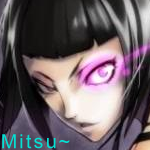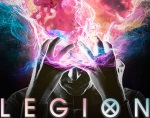WHAT MAKES A GOOD DIALOGUE?
Posts
It always bugged me, I try to avoid it but somehow I can't, I'm trying to be careful but I can't 'see' what I'm 'fighting'. So can someone clarify this to me? I don't get bothered by dialogue that much so I don't know too many things about it.
I know avoid |33t language and cellphone short cuts like that :P
I got some notes, it seems like I was able to make my dialogues natural there's just some anime-only responses, haha
Verisimilitude - it means it should sound real, like real people are saying the lines and not like someone is writing them. But in special instances you can get away with being a little more poetic. If it's a special scene it can make the dialogue better even if it's only 90% believable instead of 100%
And you should always try to minimize exposition as much as possible, like if you have to explain a lot of stuff to the audience through two characters talking, try to disguise the conversation as something else as much as you can, like it is a regular conversation, but the information the audience needs to know is in there somewhere.
A great example will be FF8, it has a good example of people speaking naturally in a game in a modern context.
I know avoid |33t language and cellphone short cuts like that :P
I got some notes, it seems like I was able to make my dialogues natural there's just some anime-only responses, haha
Verisimilitude - it means it should sound real, like real people are saying the lines and not like someone is writing them. But in special instances you can get away with being a little more poetic. If it's a special scene it can make the dialogue better even if it's only 90% believable instead of 100%
And you should always try to minimize exposition as much as possible, like if you have to explain a lot of stuff to the audience through two characters talking, try to disguise the conversation as something else as much as you can, like it is a regular conversation, but the information the audience needs to know is in there somewhere.
A great example will be FF8, it has a good example of people speaking naturally in a game in a modern context.
What makes good dialogue is when you can understand what is being said and it's not written like this,
"how r u tday?"
"how r u tday?"
I disagree with minimizing exposition. Dialogue is there to spew exposition at staggering rates. However I DO think that you can always cut back on the exposition because you don't need endless amounts of it. Just give the bare minimums.
For example instead of giving the whole history of the world in a dialogue you just give enough to keep the player going. If things are going well the player will fill in the blanks himself or better yet it will be hinted at as time goes on.
I don't like lots of useless banter. Taking a conversation you're having with a friend, recording and transcribing it will suck in terms of dialogue. Usually it will have no direction, it will be filled with senseless stuff and thought jumps and so on. "yeah" "huh" "okay" shouldn't be in.
But frankly I suck at dialogue. Usually I want an idea told but I'll have no idea how to put it forth. Following my own examples of "less is more" and "no redundancy" the characters usually end up saying either nothing or saying things in a stilted way.
For example instead of giving the whole history of the world in a dialogue you just give enough to keep the player going. If things are going well the player will fill in the blanks himself or better yet it will be hinted at as time goes on.
I don't like lots of useless banter. Taking a conversation you're having with a friend, recording and transcribing it will suck in terms of dialogue. Usually it will have no direction, it will be filled with senseless stuff and thought jumps and so on. "yeah" "huh" "okay" shouldn't be in.
But frankly I suck at dialogue. Usually I want an idea told but I'll have no idea how to put it forth. Following my own examples of "less is more" and "no redundancy" the characters usually end up saying either nothing or saying things in a stilted way.
In terms of dialogue, as in actual things that character say, I think the most important thing is characterization, as in the ability to convey different people and personalities saying things that fit their character and personality at the same time.
I repeat, good characterization is the ability to write dialogue so that it sounds like actual people are saying things. Usually when I see people write dialogue (and not just for RPG Maker), it sounds like the characters are from a bad anime, and the writers perspective of 'personality' is extremely limited (PLUCKY HERO/SPUNKY GIRL/MYSTERIOUS MAN...etc) and sounds extremely fake.
I mean, when you write this stuff you have to consider 'Does this character act and speak like someone that could possibly exist without sounding incredibly retarded?' Now, that doesn't mean that you can't write fantastical stories, or characters in unreal words doing unreal things. After all, I think FF7 has a pretty good grasp of character dialogue, and most of the characters (Cid, Barret, and Tifa come to mind) have pretty 'real' sounding dialogue and characterization even though it's a fantasy game with a crazy setting and events.
I especially loved the slums in FF7, because the NPC's alone created the feel and mood made it the closest thing to a megalopolis housing project I've ever seen in a videogame. How they spoke and what they said felt real. Hell, even a game like FF12 has some pretty 'realistic' characterization, because the characters do have their own, established personalities and especially Balthier does a good job at verbalizing it.
I repeat, good characterization is the ability to write dialogue so that it sounds like actual people are saying things. Usually when I see people write dialogue (and not just for RPG Maker), it sounds like the characters are from a bad anime, and the writers perspective of 'personality' is extremely limited (PLUCKY HERO/SPUNKY GIRL/MYSTERIOUS MAN...etc) and sounds extremely fake.
I mean, when you write this stuff you have to consider 'Does this character act and speak like someone that could possibly exist without sounding incredibly retarded?' Now, that doesn't mean that you can't write fantastical stories, or characters in unreal words doing unreal things. After all, I think FF7 has a pretty good grasp of character dialogue, and most of the characters (Cid, Barret, and Tifa come to mind) have pretty 'real' sounding dialogue and characterization even though it's a fantasy game with a crazy setting and events.
I especially loved the slums in FF7, because the NPC's alone created the feel and mood made it the closest thing to a megalopolis housing project I've ever seen in a videogame. How they spoke and what they said felt real. Hell, even a game like FF12 has some pretty 'realistic' characterization, because the characters do have their own, established personalities and especially Balthier does a good job at verbalizing it.
It is never time for words time. Make it concise instead of verbose.
Don't have "Don't forget about me!" dialog; Characters that say something just because they haven't said anything for a while.
Listen to how real people talk and try to replicate it. Reading dialog out loud should help with this.
Don't have "Don't forget about me!" dialog; Characters that say something just because they haven't said anything for a while.
Listen to how real people talk and try to replicate it. Reading dialog out loud should help with this.
what are people's thoughts on a more... setting-accurate dialogue? for example, using more formal dialogue or words like "ye" for a medieval setting instead of "hey, what's up?" lol
Considering all I do all day long is write dialogue, I like this topic.
The first trick to writing good dialogue is to listen to people. Go out into a cafe and write down what people say (if you're fast enough, it takes practice). I can't tell you guys how many times I've had to do this. But it helps.
Second, try and write the least like the movies/games as possible. If you are imitating the style of a particular game, you are imitating an imitation. You won't get it spot on - you'll just be farther removed from reality.
Third, whoever said exposition is good is wrong, but you're saying that already. What you are describing is not actually exposition. Exposition is bad and should always be avoided.
Exposition:
Guy 1: Oh my God, my head, where am I? I can't remember a thing!
Guy 2: You are the in the caverns of Wind Falls, where one hundred years ago, a mystical summoner called forth a demon to wreak havoc on the people of the nearby village, Pleasant Springs.
Guy 1: I remember now! The demon moved beyond the summoner's sphere of influence and continued to destroy towns in his path. For decades he moved from village to village, only killing innocents in his path! MY PARENTS WERE KILLED BY THIS DEMON!
Guy 2: Well I'm glad your amnesia cleared up, at least.
NOT Exposition:
Guy 1: Oh my God, my head, where am I? I can't remember a thing!
Guy 2: Don't worry, friend, I'll tend your wounds.
Guy 1: Wait just one minute, pal, get your hands off of me. I want some answers. First: where the hell is this place?
Guy 2: *Sighs.* You're in the caverns of Wind Falls. Now, may I get back to my work? That run-in you had with the Demon left you in quite a state.
Guy 1: DEMON?
Guy 2: Rest, for now. I'll tell you more once you've recovered.
Not the greatest of all examples, but still, one is exposition and the other is not.
Fourth, on the issue of dithering: to better strike a medieval fantasy mood, include minimal dithering. The occasional stutter is acceptable, but it's quite obvious that people did not say "like" back in the day. Also, to the reader, the more posh guys sound, the more old-timey we read them. However, if you're going for a modern or future setting, throw in a few more "ums," but only when they would be said. It doesn't do (um) any good (um) to (um) toss them in every (um) five seconds. Just, uh... put them where they belong.
Fifth, PRACTICE PRACTICE PRACTICE. If you want to hone your skills in anything, do it often. Eventually speech will become more natural to you.
The first trick to writing good dialogue is to listen to people. Go out into a cafe and write down what people say (if you're fast enough, it takes practice). I can't tell you guys how many times I've had to do this. But it helps.
Second, try and write the least like the movies/games as possible. If you are imitating the style of a particular game, you are imitating an imitation. You won't get it spot on - you'll just be farther removed from reality.
Third, whoever said exposition is good is wrong, but you're saying that already. What you are describing is not actually exposition. Exposition is bad and should always be avoided.
Exposition:
Guy 1: Oh my God, my head, where am I? I can't remember a thing!
Guy 2: You are the in the caverns of Wind Falls, where one hundred years ago, a mystical summoner called forth a demon to wreak havoc on the people of the nearby village, Pleasant Springs.
Guy 1: I remember now! The demon moved beyond the summoner's sphere of influence and continued to destroy towns in his path. For decades he moved from village to village, only killing innocents in his path! MY PARENTS WERE KILLED BY THIS DEMON!
Guy 2: Well I'm glad your amnesia cleared up, at least.
NOT Exposition:
Guy 1: Oh my God, my head, where am I? I can't remember a thing!
Guy 2: Don't worry, friend, I'll tend your wounds.
Guy 1: Wait just one minute, pal, get your hands off of me. I want some answers. First: where the hell is this place?
Guy 2: *Sighs.* You're in the caverns of Wind Falls. Now, may I get back to my work? That run-in you had with the Demon left you in quite a state.
Guy 1: DEMON?
Guy 2: Rest, for now. I'll tell you more once you've recovered.
Not the greatest of all examples, but still, one is exposition and the other is not.
Fourth, on the issue of dithering: to better strike a medieval fantasy mood, include minimal dithering. The occasional stutter is acceptable, but it's quite obvious that people did not say "like" back in the day. Also, to the reader, the more posh guys sound, the more old-timey we read them. However, if you're going for a modern or future setting, throw in a few more "ums," but only when they would be said. It doesn't do (um) any good (um) to (um) toss them in every (um) five seconds. Just, uh... put them where they belong.
Fifth, PRACTICE PRACTICE PRACTICE. If you want to hone your skills in anything, do it often. Eventually speech will become more natural to you.
I'm not very good at dialogue imho. But I try to avoid the protagonist saying "Let's go!" or something similar at the end of every cutscene.
My rule of thumb is to cut stuff off as soon as possible. FFXII was great at this; that ten-second scene between Basch and Penelo in the sandsea is terrific.
Second part of this video is the scene I'm talking about:
http://www.youtube.com/watch?v=M99o_Ck2W9s
When it gets to theJawasYensa, it's over.
An example:
The player examines a zombie, who has some urgh argh blah lines but is harmless. This is at the beginning of the game, so the characters are just getting used to each other.
Martin IV Urrrggghhh...
Anyway, you're Titania, right?
Titania And you happen to be Martin?
Martin IV Yeah.
Why don't you sing this poor guy a song?
He's kind of cute, in that zombie way.
Titania If I played my harp, I'd kill him.
It's tuned to emit a pitch that damages
bloodless... the undead.
Martin IV Well then.
Martin actually had some lines after that, but I cut them out. Why? The dialouge died. I had shared the important character mechanic, explained what 'bloodless' meant, and established a relationship. Hoo-hah.
Second part of this video is the scene I'm talking about:
http://www.youtube.com/watch?v=M99o_Ck2W9s
When it gets to the
An example:
The player examines a zombie, who has some urgh argh blah lines but is harmless. This is at the beginning of the game, so the characters are just getting used to each other.
Martin IV Urrrggghhh...
Anyway, you're Titania, right?
Titania And you happen to be Martin?
Martin IV Yeah.
Why don't you sing this poor guy a song?
He's kind of cute, in that zombie way.
Titania If I played my harp, I'd kill him.
It's tuned to emit a pitch that damages
bloodless... the undead.
Martin IV Well then.
Martin actually had some lines after that, but I cut them out. Why? The dialouge died. I had shared the important character mechanic, explained what 'bloodless' meant, and established a relationship. Hoo-hah.
In my pseudo-medieval project, I'm trying to get my characters speak as if they were living in the 21st century. It sounds really funny, because they've got names like ZEPHYR MAELSTROM and the people talking to them are like "Good luck, Zephyr, buddy!"
I predict the end result is going to look extremely tacky, but it's still a neat little idea I plan on working on till the very end...
EDIT: If you're making a game in a modern setting, just try and remember the speech-patterns of people in your day-to-day life, and implement those in your game.
I predict the end result is going to look extremely tacky, but it's still a neat little idea I plan on working on till the very end...
EDIT: If you're making a game in a modern setting, just try and remember the speech-patterns of people in your day-to-day life, and implement those in your game.
author=Craze link=topic=2680.msg50449#msg50449 date=1229108464I'd cut Titania's "happen to be," because it sounds too written. Maybe make Martin's final line more of an exclamation like "Well then!" Otherwise I like it. Like you said, keep it as short as possible without failing to deliver the necessary information and character development.
An example:
The player examines a zombie, who has some urgh argh blah lines but is harmless. This is at the beginning of the game, so the characters are just getting used to each other.
Martin IV Urrrggghhh...
Anyway, you're Titania, right?
Titania And you happen to be Martin?
Martin IV Yeah.
Why don't you sing this poor guy a song?
He's kind of cute, in that zombie way.
Titania If I played my harp, I'd kill him.
It's tuned to emit a pitch that damages
bloodless... the undead.
Martin IV Well then.
Martin actually had some lines after that, but I cut them out. Why? The dialouge died. I had shared the important character mechanic, explained what 'bloodless' meant, and established a relationship. Hoo-hah.
Good dialogue, to me, should have the following criteria:
- Flow with the character's personality and speech (so if someone is always in a bad mood, then make the dialogue contain negative vocabulary. If the character always speaks poetically or with large words, make him/or her poetically and with large words).
- Be about the matter at hand, or topic. (Basically by this, I mean that the dialogue/text should stay on topic, and not stray away from it (or at least not stray away for too long!). So, if someone has been killed, then the dialogue that follows should be about the character's death, not on what they are going to eat for dinner).
-Be quick and concise. (The dialogue/text should be fairly quick, as the player does not want to be dredging through hours of dialogue (if this is a game that is!), and should get right to the point. There is no use in drawing out).
Hopefully that helps someone :-\.
- Flow with the character's personality and speech (so if someone is always in a bad mood, then make the dialogue contain negative vocabulary. If the character always speaks poetically or with large words, make him/or her poetically and with large words).
- Be about the matter at hand, or topic. (Basically by this, I mean that the dialogue/text should stay on topic, and not stray away from it (or at least not stray away for too long!). So, if someone has been killed, then the dialogue that follows should be about the character's death, not on what they are going to eat for dinner).
-Be quick and concise. (The dialogue/text should be fairly quick, as the player does not want to be dredging through hours of dialogue (if this is a game that is!), and should get right to the point. There is no use in drawing out).
Hopefully that helps someone :-\.
Let me try to boil down four years of experience in a high mucketty muck creative writing program into one off the cuff forum post, like it's easy or something.
The most important thing is that good dialog is a tool, and ideally it is a tool that should do several things at once, kind of like when you have a really well grenade throw in Call of Duty: World At War and it kills SEVERAL Nazi bastards, and not just one.
Dialogue can do all of the following. The more of these things it's doing at once, the better, as long as it still makes sense. These are in no particular order:
1. Characterize the speaker. Should be self-explanatory, but there are examples above. This is called 'voice' in a technical sense.
2. Characterize the person, place, or thing being talked about. Very self-explanatory.
3. If necessary, provide camouflaged exposition. Look at aprilschild's example, I'm too lazy to provide a better one.
4. Create immersion either through versimilitude OR atmosphere/style. See also: setting the mood. Everyone here has recommended realistic dialog, but probably the most famous and important and most-praised for his dialog writer ever, a guy called William Shakespeare, wrote dialog that was NOTHING like the way people talk.
5. Foreshadowing. The inverse of exposition; exposition is telling what came before, foreshadowing is hinting at what is to come,. Foreshadowing sets up the cool AH-HAH moments in a beautiful way. Also, foreshadowing is especially important in video games where these hints can have pragmatic/tactical applications.
6. Advance the plot Cousin to foreshadowing and exposition. This is when what is said ACTIVELY CAUSES THINGS TO HAPPEN. This happens in movies quite often, and I think of it as DIALOGUE SPURS ACTIONS. This is closely related to...
7. Facilitate and demonstrate character change. Does your character have an arc? If so, how is what people say to your character causing it? And how is what your character says and what is said ABOUT your character showing it?
8. Finally, and most importantly: entertain. In all seriousness, the cool and or badass factor CANNOT be underestimated. A fancy word for this kind of dialog is epigrammatic. This means, simply: quotable. See also: memorable.
I believe you can improve dialog by reading and listening to good dialog, as well as practicing and listening to conversations.
While much maligned, I happen to think Quentin Tarantino writes FANTASTIC dialog.
Other favorites are comic book auteur Brian Michael Bendis, during his crime/noir era and before he went all commercial. As far as video games go, Fallout 2's dialogue options are generally entertaining (and surprisingly diverse), most of the Legacy of Kain games have fantastically Shakespearian dialog, and Vagrant Story is perhaps the only jRPG in the world with decent English language dialogue.
Be aware that some writers are absolutely TERRIBLE at dialog (see H.P. Lovecraft) and that these writers, if wise, will try to avoid using it whenever possible. (Also see H.P. Lovecraft.)
Finally, in video games, dialog has at least one additional special purpose: dialog must convey crucial (meta)game information to players. Similar to exposition, but even more annoying, making dialog both entertain and tell players where and how to FIND THE WIDGET is quite a challenge indeed.
BTW, I just submitted this post as an article on RMN as one of my released somethings, because I thought some people might find it useful.
The most important thing is that good dialog is a tool, and ideally it is a tool that should do several things at once, kind of like when you have a really well grenade throw in Call of Duty: World At War and it kills SEVERAL Nazi bastards, and not just one.
Dialogue can do all of the following. The more of these things it's doing at once, the better, as long as it still makes sense. These are in no particular order:
1. Characterize the speaker. Should be self-explanatory, but there are examples above. This is called 'voice' in a technical sense.
2. Characterize the person, place, or thing being talked about. Very self-explanatory.
3. If necessary, provide camouflaged exposition. Look at aprilschild's example, I'm too lazy to provide a better one.
4. Create immersion either through versimilitude OR atmosphere/style. See also: setting the mood. Everyone here has recommended realistic dialog, but probably the most famous and important and most-praised for his dialog writer ever, a guy called William Shakespeare, wrote dialog that was NOTHING like the way people talk.
5. Foreshadowing. The inverse of exposition; exposition is telling what came before, foreshadowing is hinting at what is to come,. Foreshadowing sets up the cool AH-HAH moments in a beautiful way. Also, foreshadowing is especially important in video games where these hints can have pragmatic/tactical applications.
6. Advance the plot Cousin to foreshadowing and exposition. This is when what is said ACTIVELY CAUSES THINGS TO HAPPEN. This happens in movies quite often, and I think of it as DIALOGUE SPURS ACTIONS. This is closely related to...
7. Facilitate and demonstrate character change. Does your character have an arc? If so, how is what people say to your character causing it? And how is what your character says and what is said ABOUT your character showing it?
8. Finally, and most importantly: entertain. In all seriousness, the cool and or badass factor CANNOT be underestimated. A fancy word for this kind of dialog is epigrammatic. This means, simply: quotable. See also: memorable.
I believe you can improve dialog by reading and listening to good dialog, as well as practicing and listening to conversations.
While much maligned, I happen to think Quentin Tarantino writes FANTASTIC dialog.
Other favorites are comic book auteur Brian Michael Bendis, during his crime/noir era and before he went all commercial. As far as video games go, Fallout 2's dialogue options are generally entertaining (and surprisingly diverse), most of the Legacy of Kain games have fantastically Shakespearian dialog, and Vagrant Story is perhaps the only jRPG in the world with decent English language dialogue.
Be aware that some writers are absolutely TERRIBLE at dialog (see H.P. Lovecraft) and that these writers, if wise, will try to avoid using it whenever possible. (Also see H.P. Lovecraft.)
Finally, in video games, dialog has at least one additional special purpose: dialog must convey crucial (meta)game information to players. Similar to exposition, but even more annoying, making dialog both entertain and tell players where and how to FIND THE WIDGET is quite a challenge indeed.
BTW, I just submitted this post as an article on RMN as one of my released somethings, because I thought some people might find it useful.
I have a hard time making word for word dialouge for certain characters.
Okay, let me give you an example. In 'Odyssesy for Suri Islands', all of the characters are very different. I want a way to have an orphan speak different from the best wizard in the world, and they would both speak differently than a runaway prince. See? But I'm not sure how a powerful magician would speak... oO All of these character types are different but if you play the game, it's written as if I were speaking through them. This is something to avoid. With a passion.
I'm getting the feeling that I'm not really made to make games, though I really would love to do it... >.>;
Okay, let me give you an example. In 'Odyssesy for Suri Islands', all of the characters are very different. I want a way to have an orphan speak different from the best wizard in the world, and they would both speak differently than a runaway prince. See? But I'm not sure how a powerful magician would speak... oO All of these character types are different but if you play the game, it's written as if I were speaking through them. This is something to avoid. With a passion.
I'm getting the feeling that I'm not really made to make games, though I really would love to do it... >.>;
This may be a personal preference thing, but I kinda like it when the written dialogue reflects the pronunciation spelling-wise - taking into account accents, and the like. Might get messy at times though.
I am playing Crisis Core and I hate that when the characters speak it is like they aren't speaking to each other. It is always that two people talking are each telling separate stories and tag-teaming between paragraphs. It is extremely strange. It is like when two self-important and pretentious people are having a conversation with each other.



























